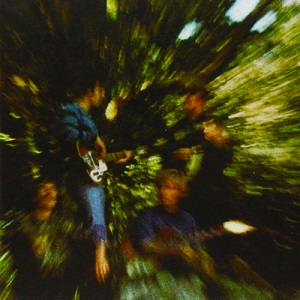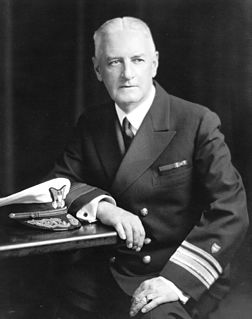The Apostles' Creed, sometimes titled the Apostolic Creed or the Symbol of the Apostles, is an early statement of Christian belief—a creed or "symbol". It is widely used by a number of Christian denominations for both liturgical and catechetical purposes, most visibly by liturgical Churches of Western tradition, including the Catholic Church, Lutheranism and Anglicanism. It is also used by Presbyterians, Moravians, Methodists and Congregationalists.

Helen Adams Keller was an American author, political activist, and lecturer. She was the first deaf-blind person to earn a Bachelor of Arts degree. The story of Keller and her teacher, Anne Sullivan, was made famous by Keller's autobiography, The Story of My Life, and its adaptations for film and stage, The Miracle Worker. Her birthplace in West Tuscumbia, Alabama, is now a museum and sponsors an annual "Helen Keller Day". Her June 27 birthday is commemorated as Helen Keller Day in Pennsylvania and, in the centenary year of her birth, was recognized by a presidential proclamation from Jimmy Carter.

The Nicene Creed is a statement of belief widely used in Christian liturgy. It is called Nicene because it was originally adopted in the city of Nicaea by the First Council of Nicaea in 325. In 381, it was amended at the First Council of Constantinople, and the amended form is referred to as the Nicene or the Niceno-Constantinopolitan Creed.

Creed was an American rock band that formed in 1993 in Tallahassee, Florida. The band's line-up, for the majority of its existence, consisted of lead vocalist Scott Stapp, guitarist and vocalist Mark Tremonti, bassist Brian Marshall, and drummer Scott Phillips. Creed released two studio albums, My Own Prison in 1997 and Human Clay in 1999, before Marshall left the band in 2000. The band's third album, Weathered, was released in 2001 with Tremonti handling bass guitar. Creed disbanded in 2004 due to increasing tension between members. Stapp pursued a solo career while Tremonti, Marshall, and Phillips went on to found the band Alter Bridge with Myles Kennedy in 2004.

Bayou Country is the second studio album by American rock band Creedence Clearwater Revival, released by Fantasy Records in January 1969, and was the first of three albums CCR released in that year.

Scott Stapp, is an American singer, songwriter, and musician, known as the lead vocalist and lyricist of rock bands Creed and Art of Anarchy. He has two solo albums: The Great Divide (2005) and Proof of Life (2013).

The Soldier's Creed is a standard by which all United States Army personnel are expected to live. All U.S. Army enlisted personnel are taught the Soldier's Creed during basic training, and recite the creed in public ceremonies at the conclusion of training. Both the Soldier's Creed and the Noncommissioned Officer's Creed are required knowledge at enlisted promotion boards to compete for the rank of sergeant and above, as well as 'Soldier of the Month' boards. It is also common practice to recite the Soldier's Creed at the graduation ceremony from Army ROTC. Unlike the U.S. Uniformed Services Oath of Office or the Oath of Enlistment, the Soldier's Creed is not a legally-binding oath and can be affirmed by both commissioned officers and enlisted soldiers.
The Rifleman's Creed is a part of basic United States Marine Corps doctrine. Major General William H. Rupertus wrote it during World War II, probably in late 1941 or early 1942. In the past, all enlisted Marines would learn the creed at recruit training. However, in recent years the creed has been relegated to the back pages of the standard recruit training guide book and its memorization is no longer considered doctrine for recruits. Different, more concise versions of the creed have developed since its early days, but those closest to the original version remain the most widely accepted.
The Sailor's Creed is a code of ethics of the United States Navy, originally developed for the promotion of personal excellence.

Creed Rowland Bratton is a fictional character from the U.S. television series The Office. Confusion may arise from the fact that the character is played by the musician of the same name, Creed Bratton. The fictional Creed is partially based on the experiences and former flower child lifestyle of the real one; however, the character is an embellished version of the real person. Unlike most characters of this version of The Office, he has no equivalent in the original BBC series despite sharing similar lines in the pilot episode with the character of Ricky Howard. Series writer B. J. Novak has said that the actual Creed Bratton is exactly like the character he plays, except that the real Creed is a good-hearted and likable person, while his fictional alter ego has a very dark side to him. His resourcefulness and duplicity are his defining traits along with his senile behavior and ignorance of the modern world.

George Petrie was an American scholar and educator who played a crucial role in the development of Auburn University. From 1887 until his retirement in 1942, Petrie held various positions at Auburn, including professor of history and Latin, head of the History Department, and dean of the Graduate School. Petrie also organized and coached Auburn's first football team in 1892.

"Have You Ever Seen the Rain" is a song written by John Fogerty and released as a single in 1971 from the album Pendulum (1970) by roots rock group Creedence Clearwater Revival. The song charted highest in Canada, reaching number one on the RPM 100 national singles chart in March 1971. In the U.S., in the same year it peaked at number eight on the Billboard Hot 100 singles chart. On Cash Box pop chart, it peaked at number three. In the UK, it reached number 36. It was the group's eighth gold-selling single.
The Airman's Creed is a creed for members of the U.S. Air Force. It was introduced in 2007 by General T. Michael Moseley, Chief of Staff of the U.S. Air Force. In a letter introducing the creed, Moseley wrote that one of his "top priorities" was to "reinvigorate the warrior ethos in every Airman of our Total Force." Thus, the intent of the creed was to enhance the building of a warrior ethos among its Airmen and to provide Airmen a tangible statement of beliefs.
Auburn University has several notable traditions, many related to its varsity teams, the Auburn Tigers.

"Green River" is a song by American rock band Creedence Clearwater Revival. The song was written by John Fogerty and was released as a single in July 1969, one month before the album of the same name was released.
The Noncommissioned Officer's Creed, shortened to NCO creed, is a tool used in the United States to educate and remind enlisted leaders of their responsibilities and authority, and serves as a Code of conduct. Each branch has their own version, and many have been altered over the years.

The Creed of the United States Coast Guardsman was written in 1938 by Vice Admiral Harry G. Hamlet, who served as Commandant of the Coast Guard from 1932 to 1936. According to former Commandant Robert Papp, the Creed described the duties and responsibilities that binds the group of Coast Guardsmen together as "shipmates".
The American Creed is a statement of the defining element of American identity, first formulated by Thomas Jefferson and elaborated by many others, that includes liberty, equality, individualism, populism, and laissez faire.. Not to be confused with Dean Alfange's "An American's Creed".

Adonis "Donnie" Creed, born Adonis Johnson, is the protagonist and titular character from the Rocky spin-off and sequel, Creed. The character is played by Michael B. Jordan, in the original movie as well as in the sequel Creed II.












